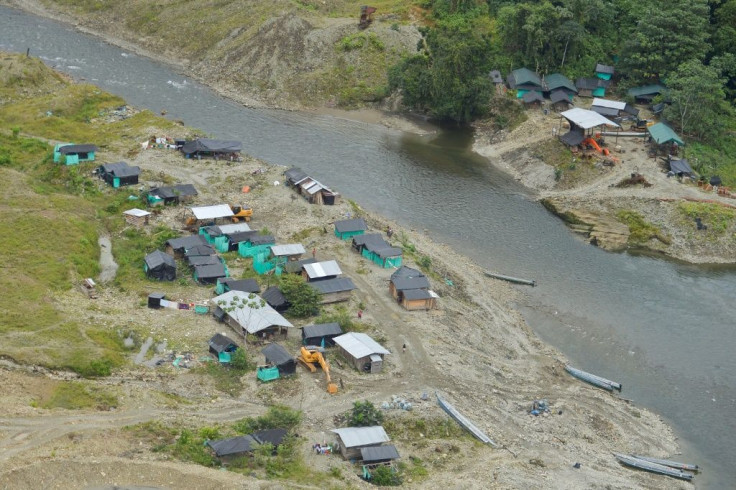Illegal Gold Mining On Colombia's Rivers On The Rise: UN
The illegal mining of gold from Colombia's rivers and waterways is on the rise, according to a report from the United Nations Office on Drugs and Crime published on Tuesday.
More than 52,000 hectares of nature reserves -- an area similar to the size of Madrid -- was affected by illegal alluvial gold extraction in 2020, the UN said.
In total, more than 100,000 hectares -- 69 percent of which is illegal -- of one of the most biodiverse countries in the world show "evidence" of alluvial gold exploitation, the UN report said.
It's a process of extracting gold from the sediment at the bottom of rivers and other waterways, and results in the waters being contaminated by mercury and other toxic substances.
It is "a worrying situation because it has ties to organized crime," said Pierre Lapaque, the Colombia representative for the UN Office on Drugs and Crime representative, as he presented the report in Bogota.
The study shows that alluvial gold exploitation increased slightly from 2019 when there were 98,000 hectares affected, 66 percent of which was done illegally.

Organized crime is behind this increase, the UN said, adding that it was mostly affecting the northern, northwestern and western regions.
Those regions are blighted by violence raging between left-wing guerrillas, right-wing paramilitaries and drug-traffickers battling for control of the lucrative drug and mineral extraction trades.
"These illegal organizations are a threat to biodiversity and create violence and poverty," said the US ambassador in Colombia, Philip Goldberg.
The report did not say how much gold has been extracted illegally, nor its commercial value.
Colombian authorities say the total gold production in the country increased from 37.5 tons in 2019 to 47.8 tons the next year, when prices reached historic highs.
In more than half of the areas affected by gold extraction there are also coca leaf crops -- the main ingredient in cocaine -- the report said.
Colombia is the largest cocaine exporter in the world, much of it destined for the US.
© Copyright AFP 2024. All rights reserved.





















